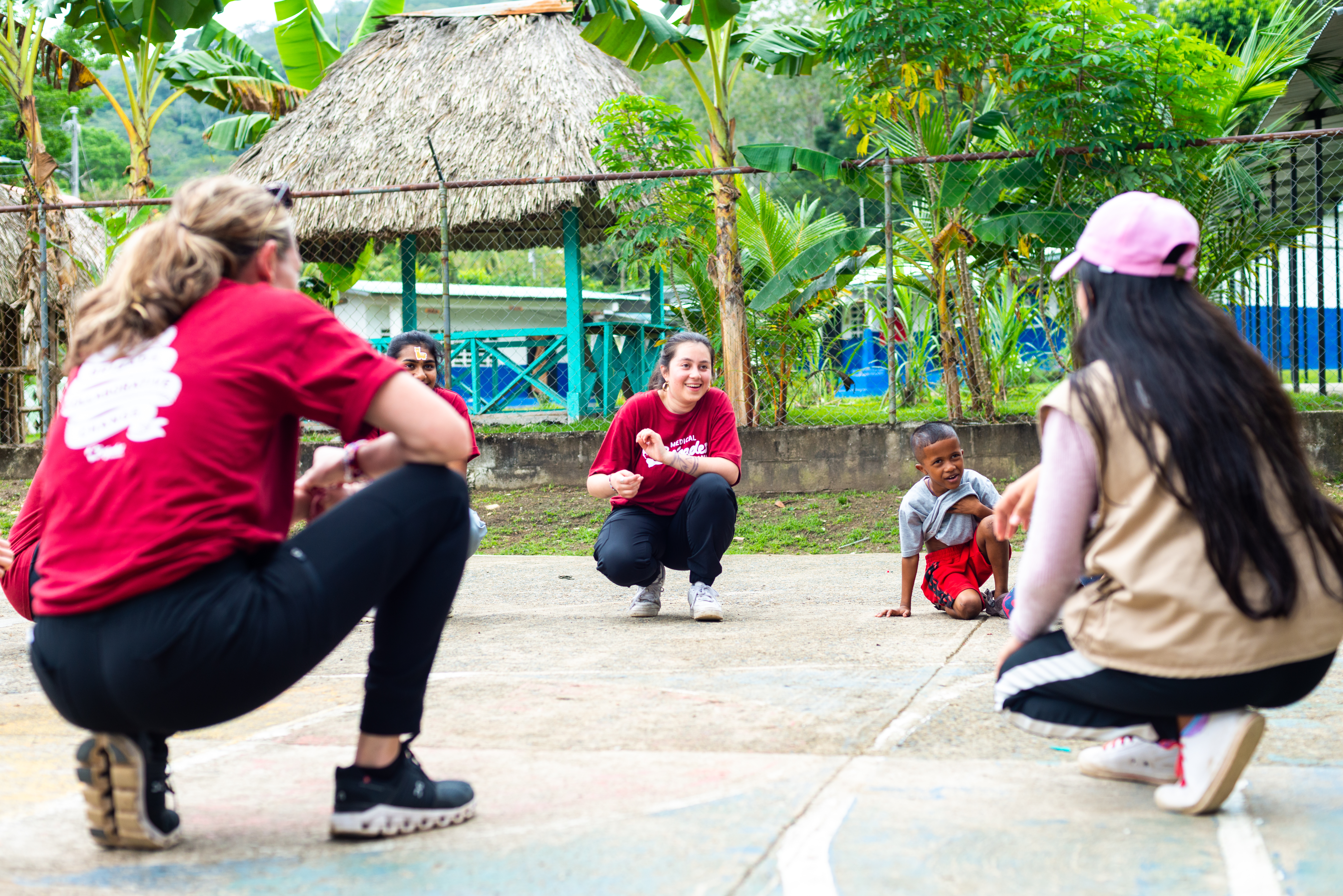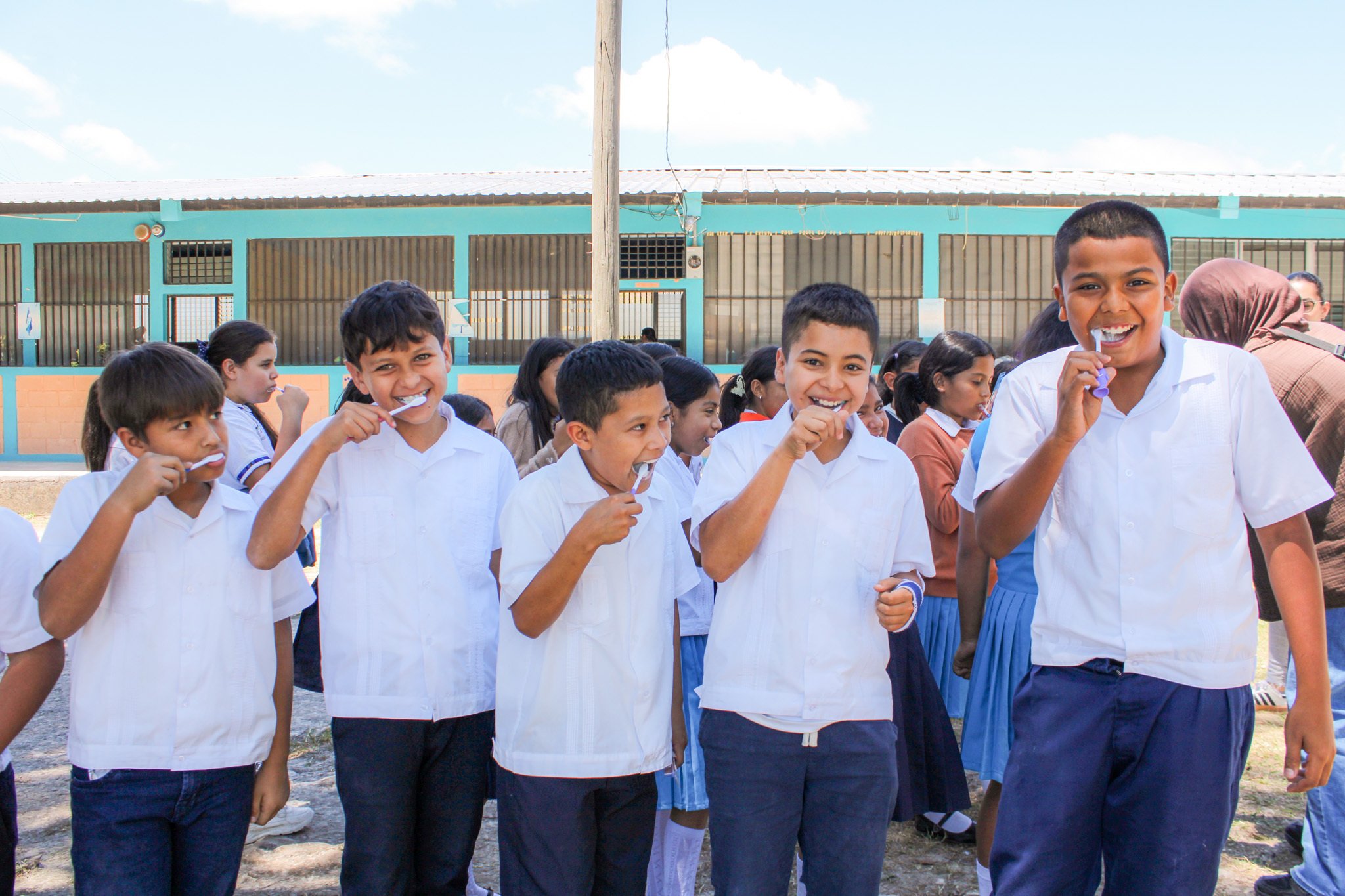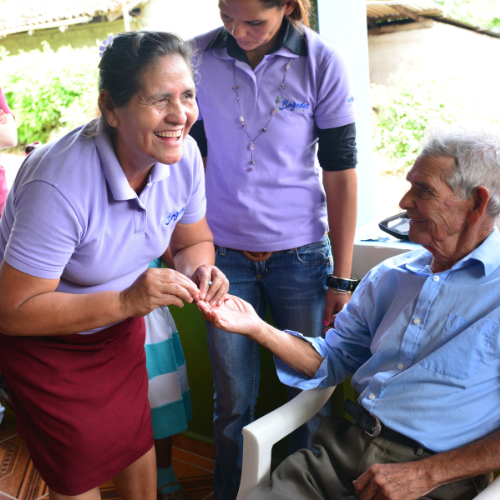When you think about volunteering abroad, it’s easy to picture yourself helping run a medical station, provide support with dental care, or helping build a water filtration system to bring clean water to a new community. But the most transformative part of the experience isn’t just what you do. It is what you learn.
At Global Brigades, we prepare volunteers to approach service through cultural humility instead of assumptions. One of the biggest barriers to meaningful impact is ethnocentrism, or seeing another culture only through the lens of your own. If left unchecked, ethnocentrism can turn good intentions into misunderstandings. That’s why every aspect of our Holistic Model, from pre-departure training to community-led programs, is designed to shift the focus from “helping” to partnering.
Ethnocentrism in Volunteering: What It Can Look Like
Ethnocentrism often shows up in subtle ways during international experiences. It isn’t always intentional, but it can shape how volunteers interact with communities:
- Language Superiority: Defaulting to English instead of learning key local phrases or relying on translators.
- Food & Traditions: Dismissing local practices as “strange” or “exotic” rather than appreciating them as meaningful cultural expressions.
- Stereotyping: Making broad assumptions about a culture based on limited experiences.
- “Savior” Mindset: Approaching service as though communities need rescuing, instead of recognizing their strengths and leadership.
At Global Brigades, we help volunteers unpack these biases before and during their Brigade. Through pre-departure training, in-country orientations, and daily reflections, students learn how to engage with humility, curiosity, and respect
How Global Brigades Helps Volunteers Overcome Ethnocentrism
At Global Brigades, we know that ethnocentrism isn’t usually intentional but often unconscious. That’s why we’ve built intentional steps into every Brigade experience to help volunteers approach service with cultural humility instead of assumptions.
Here’s how we prepare you for a meaningful, respectful partnership:
- Pre-Departure Orientation: Before leaving home, volunteers receive training on cultural humility, language basics, and community context to set the stage for listening and learning first.
- Community-Led Programs: All Brigades include local doctors, Community Healthcare Workers (CHWs), engineers, and lawyers based on the type of Brigade. Volunteers join as partners, not outsiders “delivering aid.”
- Hands-On Collaboration: Whether building public health infrastructure, supporting medical stations, or working on small business initiatives, students collaborate directly with families and community leaders.
- Daily Reflection & Learning: In-country, teams take time to process experiences together by examining assumptions, celebrating cultural differences, and reinforcing lessons of humility and respect.
- Sustainable Impact: All of our programs are designed with long-term goals set by communities themselves. This ensures that volunteers contribute to lasting change rather than one-time interventions.
By embedding cultural learning into the heart of every Brigade, we help volunteers gain more than just professional experience. By the end of the Brigade, they will have gained empathy, global perspective, and a deeper respect for the dignity and resilience of the communities they served.
Final Thoughts
Ethnocentrism narrows our view of the world. Cultural humility opens it. Practicing cultural humility doesn’t mean ignoring your own background. It means showing up ready to listen, learn, and respect. At GB, volunteers gain the skills to do just that while learning directly from community leaders who are shaping their own futures. These experiences, in turn, help prepare our volunteers to become more empathetic leaders and global citizens ignited to drive impact in their chosen professions.
If you’re ready to move beyond ethnocentrism and become part of the largest student-led movement for global health and development, now is the time to take the next step:
Find My Chapter
Explore Upcoming Brigades
Join the movement!
See how true impact begins with listening, learning, and working together.





